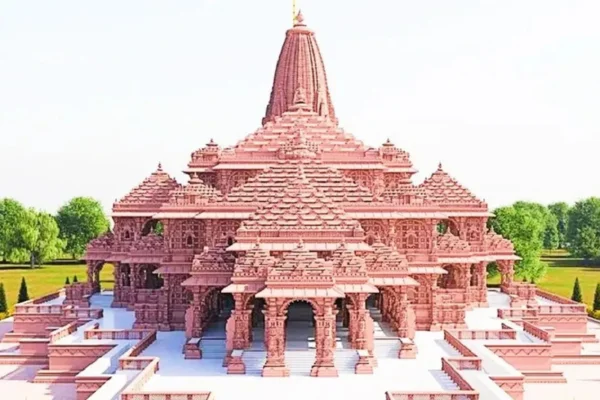As the date for the grand consecration at Ayodhya’s Ram Temple approaches, Karnataka Deputy Chief Minister DK Shivakumar has asserted that neither he nor the Chief Minister has received an invite for the ceremony on January 22. Adding to speculations about the Congress party’s participation, Shivakumar mentioned that the party will make the final decision.
“I have not been invited. Neither our CM nor I have been invited. I saw that our Congress president (Mallikarjun Kharge) has been invited, but the party will take a call,” said Mr. Shivakumar.
Despite projecting himself as a ‘Ram bhakt’ (devotee), Shivakumar emphasized that one’s connection with faith is personal, and there is no need to politicize it.
“I’m a Hindu; I’m a Ram bhakt; I’m a Hanuman bhakt. We all pray from here. We have it within ourselves, in our hearts. There is nothing to politicize here,” stated the Congress leader.
Sources indicate that Congress Parliamentary Party chairperson Sonia Gandhi and party president Mallikarjun Kharge have received invitations for the consecration. However, the party has not yet confirmed their attendance.
Bihar Chief Minister and Janata Dal-Secular President Nitish Kumar, along with CPI (M) General Secretary Sitaram Yechury, are among other opposition leaders who have received invitations. The CPI (M) has already declined the invitation, citing it as a “politicization of religion.” The attendance of Nitish Kumar remains unconfirmed.
The grand consecration at Ayodhya’s Ram Temple holds immense significance, and the presence or absence of opposition leaders at the event has become a topic of discussion. The Ram Temple has been a longstanding issue in Indian politics, and its construction has been a key promise of the ruling Bharatiya Janata Party (BJP).
The Congress party’s decision to attend or abstain from the event may be influenced by various factors, including political considerations and the party’s stance on secularism. While individual leaders, like Shivakumar, may express personal religious affiliations, the party’s official stand is crucial in the context of India’s diverse and pluralistic society.
As the party deliberates on the invitation, the Ram Temple consecration continues to be a focal point in the broader narrative of religious identity and politics in India. The presence of political leaders from different parties at the event reflects the complex interplay of religion and politics in the country.
While Shivakumar’s acknowledgment of being a devotee emphasizes the personal aspect of faith, the larger question remains about the role of political leaders in religious events. The Ram Temple consecration, with its historical and cultural significance, has become a symbol of religious unity for some and a matter of contention for others.
As the ceremony approaches, the political landscape will likely witness further developments, with attention focused on the participation or non-participation of key leaders. The Congress party’s decision will be closely watched, as it navigates the delicate balance between secularism and respecting diverse religious sentiments in the Indian political context.














